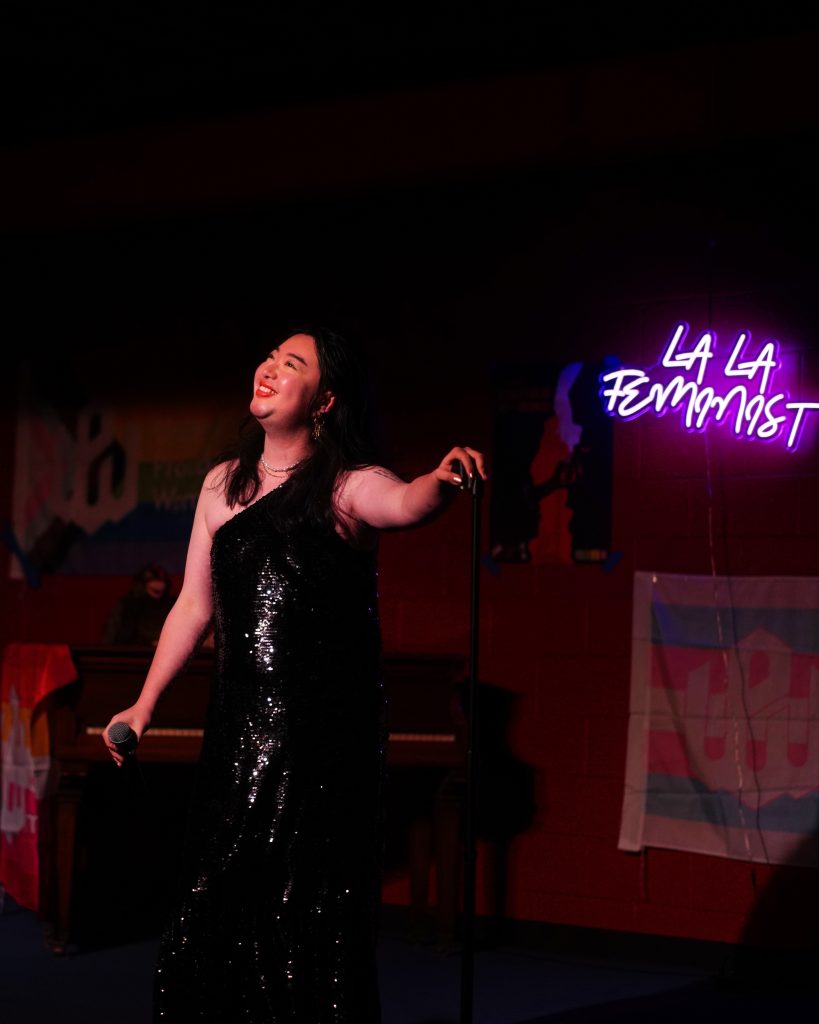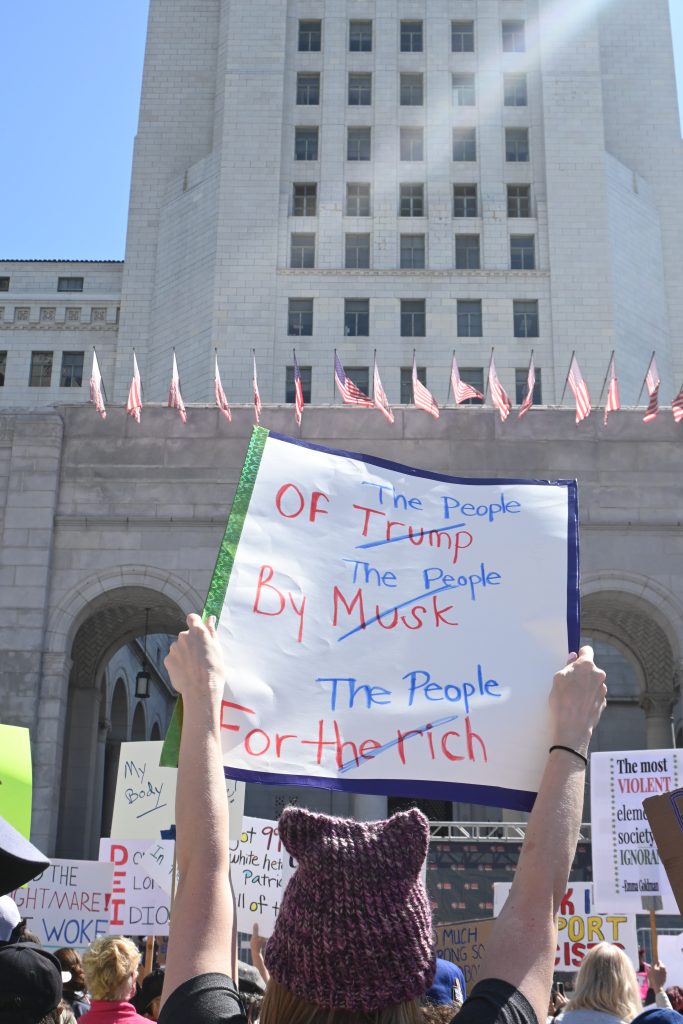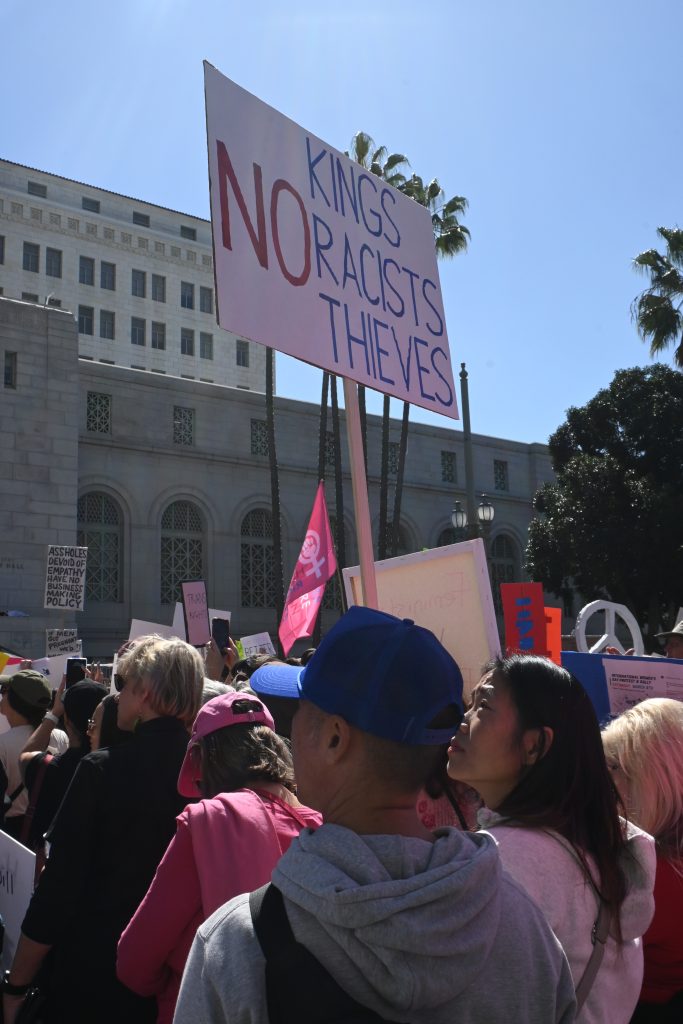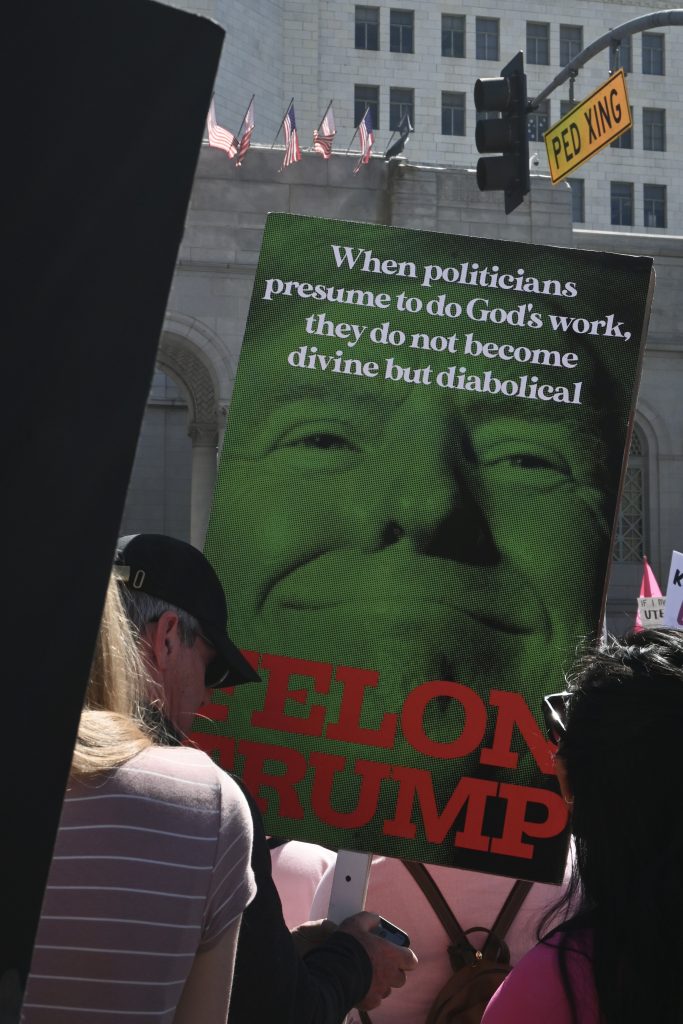Between Borders and Identities
How Transgender Immigrants Navigate Survival, Visibility, and Uncertainty Amid Harsh Immigration Policies and Rising Political Hostility
Written by: Weiwei Huang
Albus Wang spent over a decade crafting a life in Los Angeles, finding a sense of freedom and identity as an artist and photographer. The city, with its vibrant queer communities and artistic spaces, offered Wang the ability to openly explore their gender identity—a liberty largely unavailable in their native China. However, their carefully crafted life abruptly ended when their H-1B working visa expired, depriving them of the legal right to stay in the United States.
“I had no choice but to leave.” – Albus Wang
“I had no choice but to leave,” Wang explained from their temporary residence in Thailand.
Just days before their departure, on March 9th, 2025, Wang attended the LALA Feminist Open Mic, where they spoke openly about their sexuality and gender identity.
Reflecting on that night, Wang said, “It felt like a rare moment where I was truly seen and safe. The audience was supportive, and for a brief moment, I didn’t feel the pressure of my immigration status.”
Their voices echoed with the weight of those who had faced the sudden end of their dreams. “I knew this day would come eventually, but facing the reality of being forced out—it hit me harder than I expected.”
Albus Wang on Love, Gender, and the Pain of Liking Men
Wang initially moved to the U.S. on a student visa and later secured a vocational visa through enrollment in a cosmetology school, each visa representing a tentative foothold. However, temporary statuses could not provide lasting stability.
They invested their hopes and resources into an EB-5 visa, an investor-based route to permanent residency, yet that application has languished unresolved for nearly eight years due to bureaucratic delays and shifting immigration policies. “I don’t even know if I’ll ever get approved,” Wang admitted. “In the meantime, waiting wasn’t an option. I couldn’t just remain in the U.S. indefinitely.”
The uncertainty is equally consuming for Brett Zhong, a USC economics graduate currently navigating life on Optional Practical Training (OPT). His job—moderating TikTok live-stream sales—is one he openly dislikes. But the position offers something far more critical than career satisfaction: a rare visa sponsorship.
“I don’t have the luxury of choosing a job that fulfills me. This sponsorship is the only reason I’m still here. It’s nearly impossible to find another company willing to sponsor a trans immigrant.”
Brett zhong
“I don’t have the luxury of choosing a job that fulfills me,” Zhong said. “This sponsorship is the only reason I’m still here. It’s nearly impossible to find another company willing to sponsor a trans immigrant.”
Now, Zhong is preparing to enter the H-1B visa lottery, a system infamous for its low approval rates and opaque selection process. “It’s not about qualifications,” he said. “It’s just luck. And that’s exhausting.”
Inside the workplace, discrimination shadows him just as heavily. At a company gathering, coworkers once cornered him with invasive questions. “They asked, ‘Are you a T?’—a Chinese slang term for a butch lesbian,” Zhong recalled. He explained that he’s transmasculine, only to be met with blank stares. “So… you’re a T,” one responded flatly.
“They don’t see me as a person,” Zhong said, pausing for a moment. “They see me as something to gawk at.”
For Nevaeh Li, a transmasculine USC senior from China, that sense of being misunderstood runs deeper than just language—it’s tied to cultural expectations around gender, care, and who gets to be believed. His experience transitioning across two countries has left him questioning not just how others see him, but how he’s been taught to see himself.
You can hear more of Li’s story in the podcast episode below.
These personal narratives reflect a broader reality facing trans immigrants, compounded by an intensifying political landscape under President Donald Trump’s second term.
Early in 2025, as the timeline shows, a series of executive orders dramatically reshaped transgender rights and immigrant experiences.
Kennedy Richardson, an outreach coordinator at the Border Butterflies Project from Trans Law Center, highlighted the severe implications of these policy changes.
“Every executive order, every ICE memo, doesn’t just disappear into bureaucracy—it directly affects someone’s life,” Richardson emphasized. According to a UCLA Williams Institute report from 2023, nearly 30% of transgender immigrants experience discrimination during the visa or documentation process.
“The system isn’t merely flawed. It feels intentionally hostile.” – Kennedy Richardson
“When only male or female options are mandated, non-binary identities become invisible. A mismatch between your documents and your lived identity becomes a target for immigration enforcement,” Richardson explained. “The system isn’t merely flawed. It feels intentionally hostile.”
For trans immigrants, navigating the system is akin to balancing legal compliance, identity, and survival, with the safety net constantly vanishing.
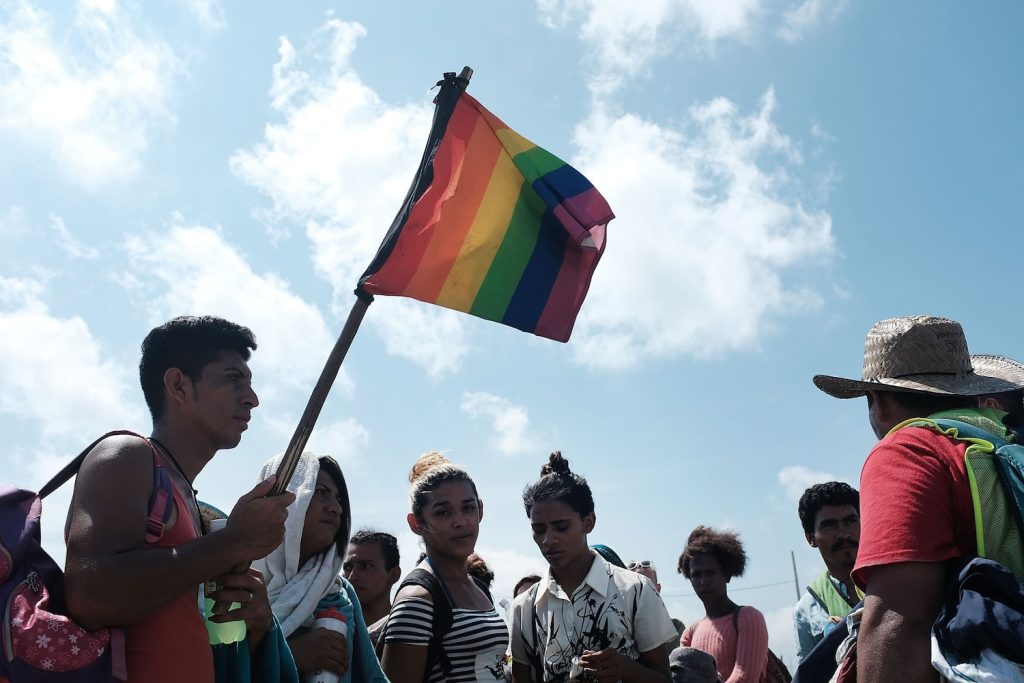
Recent policy shifts and heightened enforcement represent existential threats to undocumented transgender immigrants like Mayorga, a trans woman from El Salvador working clandestinely in East Los Angeles, who requested anonymity due to fear of deportation.
To survive, Mayorga cleans commercial buildings overnight, a job demanding invisibility. “They don’t know I’m trans. If they did, I’d lose my job instantly,” she said, her voice trembling slightly.
Over the past four years, she has cycled through ten different employers, each paying under the table, none offering health insurance or basic protections.
Typically, Mayorga walks into local restaurants or stores and directly asks managers if they can pay her in cash. “They immediately know I’m undocumented,” she explained. “But if they pay cash, they avoid taxes. That’s how I make a living.”
This precarious arrangement unraveled once when a manager overheard coworkers discussing her gender identity. “He fired me just days later,” Mayorga recalled, adding that he dismissed her presence as “too much drama.”
She relies on informal networks for hormone therapy due to her lack of insurance and fear of discovery. Once, after a severe reaction to an injection, she fled a medical clinic in panic when staff requested identification.
According to the National Center for Transgender Equality (NCTE), 29% of undocumented transgender people similarly avoid medical care out of deportation fears. It’s a significantly higher rate compared to approximately 8% of the general U.S. population who avoid medical care due to concerns about legal repercussions or immigration status.
For Mayorga and others within this vulnerable community—estimated by NCTE to be between 15,000 and 50,000 in the U.S.—employment insecurity, poverty, and health inequities are daily realities.
“Every siren, every unexpected knock at the door makes me freeze.”
Mayorga
“Every siren, every unexpected knock at the door makes me freeze,” Mayorga said.
These challenges aren’t isolated incidents. They speak to broader systemic issues that Bamby Salcedo, President of The TransLatin@ Coalition, actively confronts.
Under her leadership, the Coalition expanded significantly in 2024, opening new centers in El Monte and Orange County and relocating its Los Angeles office to better serve the community.
Salcedo passionately criticized recent political moves, notably Governor Gavin Newsom’s stance against transgender athletes in women’s sports, which she views as political manipulation.
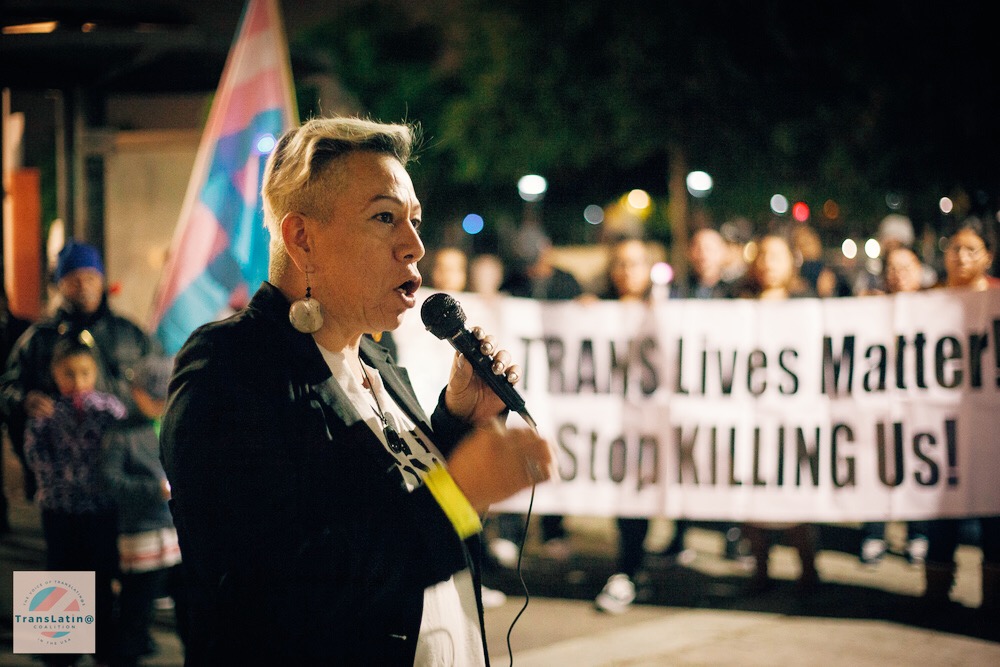
“We will not let anyone use our children as pawns,” Salcedo firmly stated.
“Today we have an administration trying to dismantle our progress piece by piece, but we will keep fighting, advocating, scratching, kicking—whatever it takes to ensure our continued existence.”
The broader political climate compounds these personal struggles. In the early days of President Donald Trump’s second term, a series of executive orders swiftly and profoundly reshaped the rights landscape for transgender individuals and immigrants in the United States.
Legal challenges have emerged from the executive actions, leading to judicial interventions. Notably, on February 21, 2025, a federal judge issued a preliminary injunction largely blocking executive orders to terminate Diversity, Equity, Inclusion, and Accessibility (DEIA) programs within federal agencies.
These orders sought to eliminate DEIA initiatives, promoting a “merit-based, colorblind” federal workforce. The judge’s ruling highlighted potential violations of constitutional principles, including free speech rights, and emphasized the chilling effect these orders could have on DEIA efforts.
Richardson emphasized the importance of these court decisions: “Every injunction gives trans immigrants space to breathe, but these protections are temporary. Real safety requires comprehensive policy changes, not just temporary pauses.”
These preliminary injunctions temporarily block the enforcement of executive orders targeting DEIA initiatives and transgender rights. However, they aren’t permanent solutions; ongoing legal cases mean future court rulings could either strengthen or overturn these protections.
This legal pushback underscores the contentious nature of the administration’s policies and the ongoing battle over civil rights and inclusion in America.
The undocumented transgender adults in the U.S. face compounded vulnerabilities, including employment insecurity, poverty, and health inequities. Many transgender immigrants like Mayorga flee severe persecution or desperate poverty, only to encounter systemic barriers in the U.S.
Recently, however, Mayorga connected with the Trans Law Center, which has helped her access proper hormone therapy—a vital lifeline amid persistent fears and uncertainties. The organization emphasizes that any comprehensive immigration reform must address the unique challenges faced by transgender immigrants.
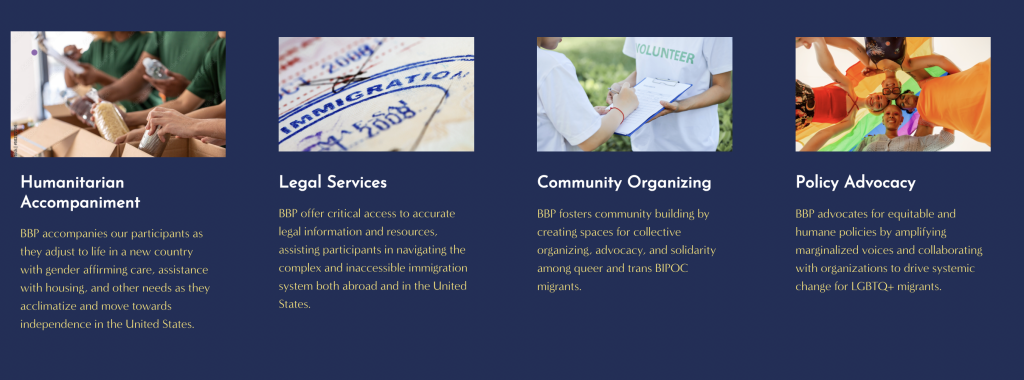
Both Wang and Zhong find themselves caught between increasingly hostile political landscapes in China and the United States.
For Wang, openly existing as a trans person in China carries profound personal risks, intensified by government crackdowns. “There was once a thriving community in Beijing,” Wang remembered. “But now it’s nearly impossible to live openly.”
In America, visibility brings different challenges, including politicization, targeted violence, and institutional exclusion. “My immigration status can’t be changed overnight,” Wang reflected, “but through my art, I can assert our existence and humanity.”
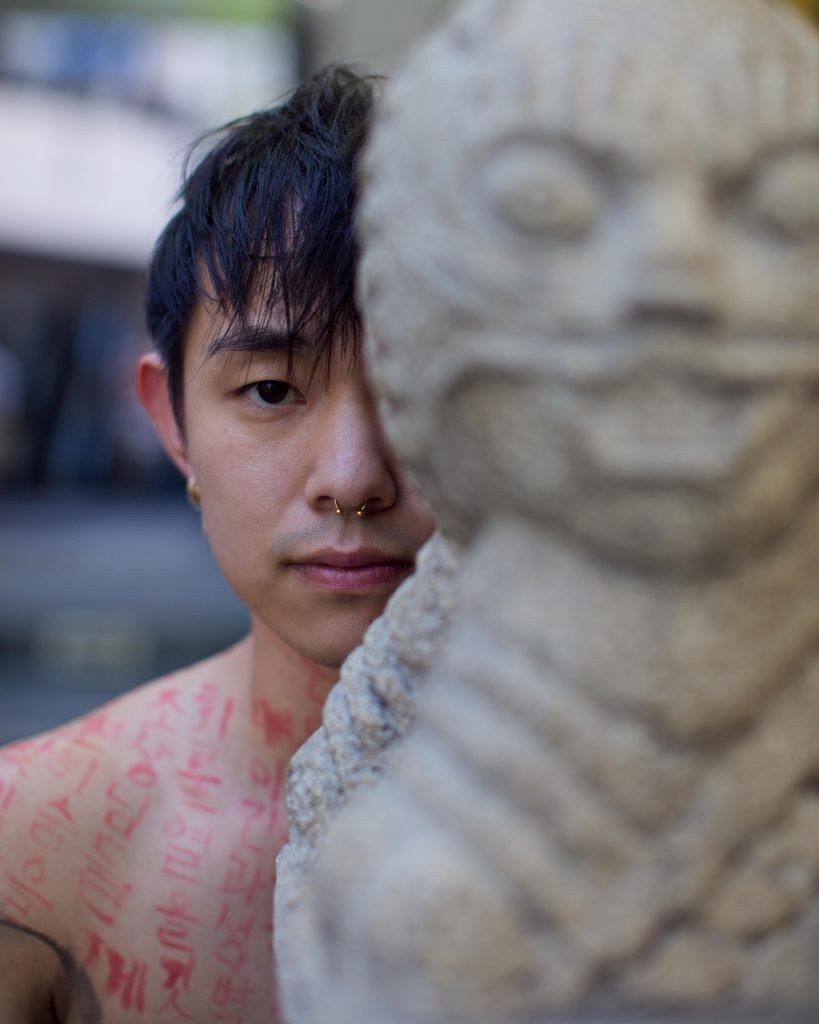

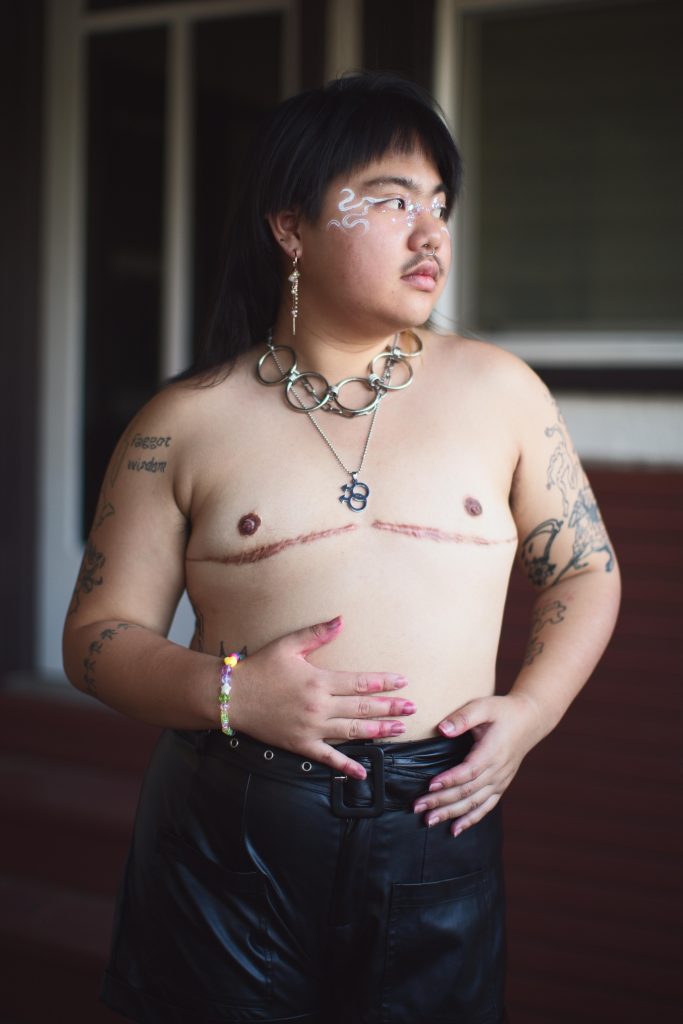
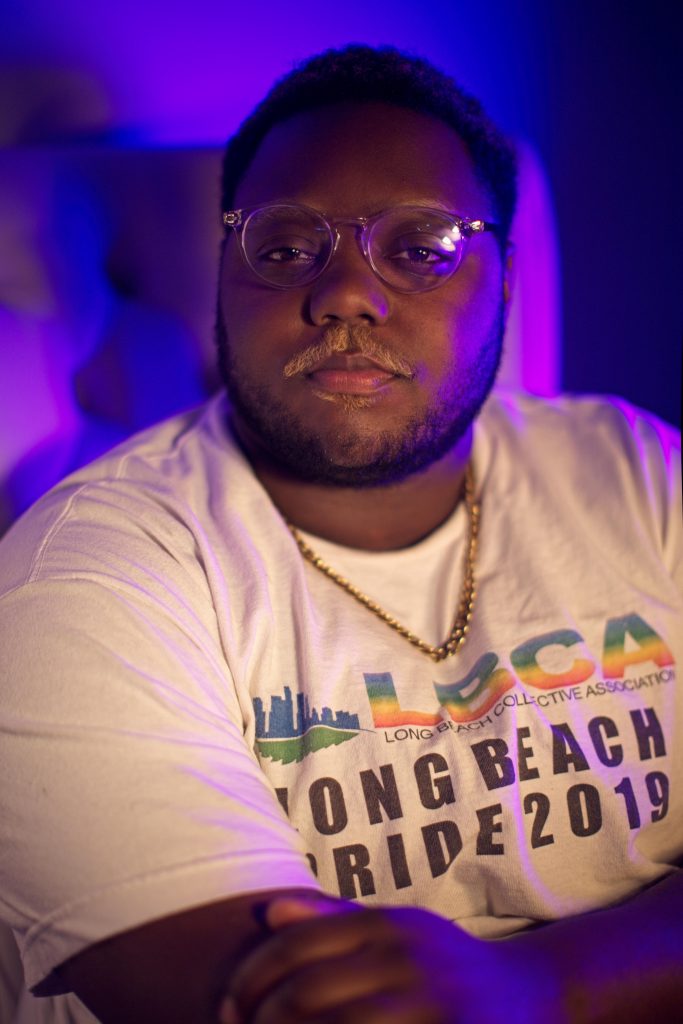
For Zhong, survival means accepting constant instability and discrimination to remain legally compliant. “I don’t have the privilege to find a perfect situation,” he concluded. “I’m just desperately clinging to anything that allows me to stay.”
The stories of Wang, Zhong, Mayorga, Li, and countless others highlight a profound, shared question:
“Where do we go from here?”
It’s a question rooted in survival, identity, and the fundamental desire to exist openly, safely, and authentically. Amidst relentless challenges, individuals continue to navigate uncertainties between borders, between identities, and between survival and hope.

